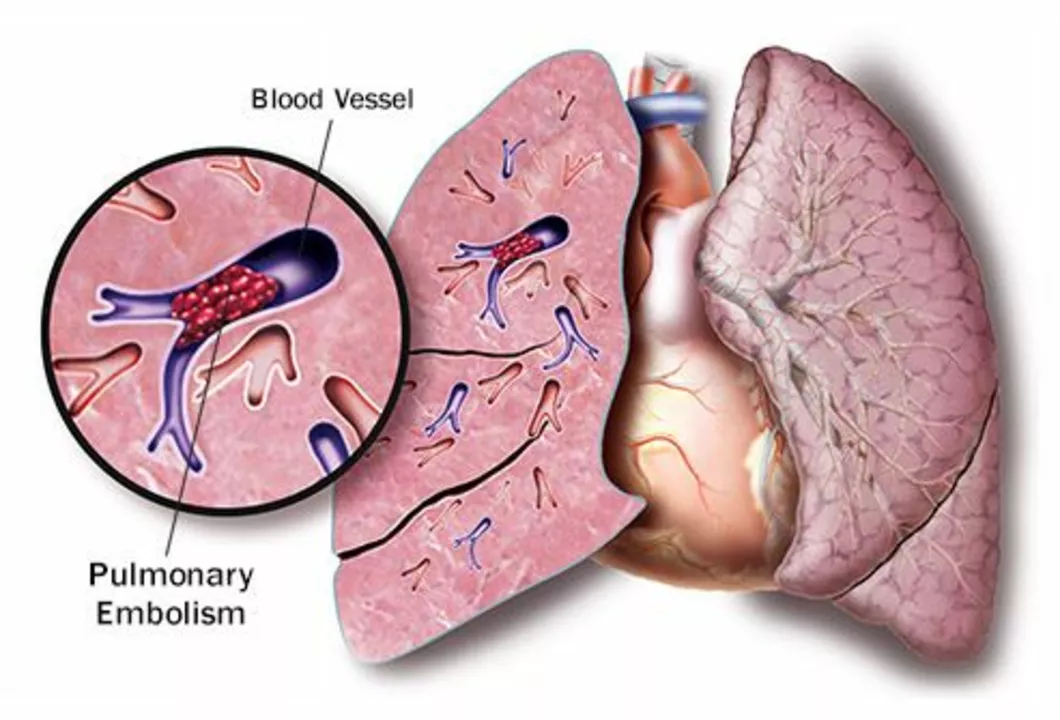
Understanding Pulmonary Embolism and its Psychological Effects
Pulmonary embolism (PE) is a serious medical condition that occurs when a blood clot blocks one of the blood vessels in the lungs. This can lead to a life-threatening situation, as it restricts the flow of oxygenated blood to the rest of the body. The experience of having a pulmonary embolism can be both physically and emotionally traumatic, leaving the affected individual with feelings of anxiety and fear.
The psychological impact of pulmonary embolism cannot be underestimated, as it can lead to the development of mental health issues such as anxiety and depression. Understanding the causes, symptoms, and treatment options for pulmonary embolism is crucial in order to deal with the emotional consequences of this condition effectively. In this article, we will explore the psychological impact of pulmonary embolism and discuss strategies for coping with the resulting anxiety and fear.
Recognizing the Symptoms of Anxiety and Fear
Post-traumatic stress disorder (PTSD), anxiety, and depression are common psychological outcomes of experiencing a life-threatening event like a pulmonary embolism. It is essential to recognize the symptoms of anxiety and fear in order to seek appropriate help and support.
Common symptoms of anxiety include excessive worrying, feeling restless or on edge, irritability, difficulty concentrating, and sleep disturbances. Symptoms of fear may manifest as panic attacks, racing heart, shortness of breath, dizziness, or nausea. If you or a loved one is experiencing any of these symptoms, it is important to consult a healthcare professional for guidance and support.
Seeking Professional Help
Once you have identified the symptoms of anxiety and fear, it is important to seek professional help. A mental health professional, such as a psychologist or psychiatrist, can provide the necessary support and guidance to help you manage and overcome these feelings.
Cognitive-behavioral therapy (CBT) is a commonly recommended treatment for anxiety disorders. CBT helps individuals to identify and change negative thought patterns and behaviors that are contributing to their anxiety. Medication, such as antidepressants or anti-anxiety drugs, may also be prescribed to help manage symptoms.
Developing a Support Network
Having a strong support network is crucial when coping with the psychological impact of pulmonary embolism. Reach out to family and friends for emotional support, and consider joining a support group for individuals who have experienced a pulmonary embolism or other traumatic health events.
Support groups can provide a safe space for individuals to share their experiences, learn from others, and gain valuable coping strategies. Connecting with others who have gone through similar experiences can help to alleviate feelings of isolation and provide a sense of hope and encouragement.
Practicing Self-Care
Practicing self-care is essential in managing anxiety and fear related to pulmonary embolism. This includes ensuring that you are getting adequate sleep, eating a balanced diet, and engaging in regular physical activity.
Additionally, it is important to engage in activities that promote relaxation and stress reduction. This may include deep breathing exercises, meditation, yoga, or engaging in enjoyable hobbies. Prioritizing self-care can help to improve overall mental health and well-being.
Setting Realistic Expectations
It is essential to set realistic expectations for your recovery from pulmonary embolism, as well as for the management of anxiety and fear. Recovery from a pulmonary embolism can take time, and it is important to be patient with yourself and allow yourself the time and space to heal.
Similarly, managing anxiety and fear is an ongoing process that requires consistent effort and attention. It is important to remember that progress may be slow, and setbacks may occur. Be patient with yourself and maintain a positive attitude towards your recovery and mental health journey.
Educating Yourself and Others
Knowledge is power, and educating yourself about pulmonary embolism can help to alleviate some of the anxiety and fear associated with the condition. Understanding the causes, symptoms, and treatment options for pulmonary embolism can provide a sense of control and help to alleviate anxiety.
Additionally, educating family members and friends about the condition can help to create a supportive and understanding environment. Encourage open communication and be willing to answer questions and share information about your experiences.
Developing a Coping Plan
Developing a personalized coping plan can help to manage anxiety and fear related to pulmonary embolism. This plan may include strategies for managing stress, such as deep breathing exercises or progressive muscle relaxation, as well as activities that promote mental and emotional well-being, such as journaling or engaging in hobbies.
It is important to have a plan in place for dealing with potential setbacks or challenging situations. This may include having a list of emergency contacts, such as healthcare professionals or supportive friends, as well as a plan for seeking additional support or treatment if needed.
Maintaining Hope and Resilience
Coping with the psychological impact of pulmonary embolism can be challenging, but it is important to maintain a sense of hope and resilience. Remember that recovery is possible, and many individuals are able to lead fulfilling lives after experiencing a pulmonary embolism.
Focusing on your strengths and accomplishments, as well as the support of your loved ones, can help to foster a sense of hope and optimism. Embrace the challenges associated with recovery and view them as opportunities for personal growth and self-discovery.

I survived a PE last year and honestly the fear never really left. I still check my breathing like it's a job. But I started hiking and now I carry my meds in my fanny pack like a badge. You got this.
I just want to say: please, please, please talk to someone. I didn't for months. And then I broke down in the grocery store over oatmeal. It's not weak. It's human.
Let me be clear: the medical establishment is exploiting your trauma. PE is not a 'traumatic event'-it's a symptom of systemic anticoagulant under-regulation. The FDA has known since 2012 that low-dose aspirin protocols reduce recurrence by 68%, yet they promote SSRIs instead. Coincidence? Or profit-driven suppression of cheaper alternatives?
Bro. I had a PE. I was in the ER. I thought I was dying. I cried so hard my IV bag shook. And then? I started writing poetry. Now I perform at open mics. It’s wild. Trauma doesn’t kill you. It just gives you material. And I’m using it.
People don’t realize how much this is a failure of personal responsibility. If you were just more active, ate cleaner, didn’t sit on your butt all day-you wouldn’t be here. Stop playing the victim. And yes, I use emojis because I’m done being polite: 🤦♀️
I just want to add that support groups really helped me. I didn’t think I’d ever talk about it, but hearing someone else say, 'I feel the same way' made me feel less alone. You’re not broken. You’re healing. And that’s okay.
While I appreciate the sentiment of this article, it lacks the necessary academic rigor. The cited studies are observational at best. Have you considered the confounding variables of socioeconomic status, access to healthcare, and the placebo effect of CBT? Also, the term 'self-care' is a bourgeois euphemism for commodified wellness culture. True healing requires systemic change, not meditation apps.
I lost my brother to PE. No one told us how much the fear sticks around. I didn’t know people felt this way. Thank you for writing this. It’s not just medical-it’s human.